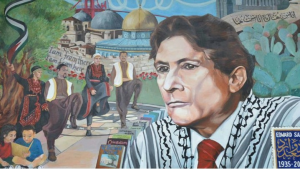To:
Hon. Chrystia Freeland
Minister of Foreign Affairs Canada
chrystia.freeland@parl.gc.ca
Re: Appeal to Drop All Charges against Dr. Anand Teltumbde
Madam:
We wish to bring to your notice a series of arrests of intellectuals and activists in India within a growing environment of violence against expressions of dissent, such as the murder of several intellectuals and the journalist-activist Gauri Lankesh in 2017. The latest target of this suppression of dissent is Dr. Anand Teltumbde, a scholar we had invited to Canada to lecture at the University of British Columbia and Simon Fraser University
Dr Anand Teltumbde, an alumnus of the prestigious Indian Institute of Management-Ahmedabad, Executive Director of Bharat Petroleum Corporation Ltd., Ex-MD & CEO of Petronet India, former Professor of Business Management at IIT-Kharagpur, currently Senior Professor and Chair, Big Data Analytics in Goa Institute of Management, author of 26 books, columnist in the premier social studies journal in India, Economic and Political Weekly, writer of innumerable articles, a noted scholar of caste-class and public policy issues, public intellectual and human rights activist faces imminent arrest as a so-called ‘Urban Naxalite’ (or Maoist) under the draconian Unlawful Activities (Prevention) Act (UAPA). The charges against him are patently fabricated. People arrested under this act face years of incarceration without trial.
Dr. Teltumbde recently has introduced a post-graduate course in Big Data Analytics in Goa that is the first of its kind in India. As a member of the Dalit community born in humble circumstances, Dr. Teltumbde has always stood in support of the struggles of the underprivileged and has been a guiding force in the movement for accessible education in India.
Dr. Teltumbde has travelled extensively to lecture on Dr. Ambedkar and the Dalit struggle. It was in order to give such lectures that he was invited by the Dr. Ambedkar Memorial Lecture Committee, comprising the Institute for the Humanities, Simon Fraser University; Department of Asian Studies, Centre for India and South Asia Research, and the Robert H. N. Ho and Family Foundation Program in Buddhism and Contemporary Society at the University of British Columbia; Chetna Association of Canada; and the Dr. Hari Sharma Foundation for South Asian Advancement, to deliver the Dr. Ambedkar Memorial Lecture in Vancouver and Surrey in 2016. This was followed by lectures in Winnipeg, Toronto and Montreal.
Dr. Teltumbde’s home in Goa was raided in his absence without any notice by the Poona Police on August 28, 2018. At the same time in simultaneous raids in several cities, the homes of others, including a priest, were similarly raided and five writers, lawyers, civil-rights activists, and an octogenarian poet, were arrested and continue to be incarcerated. Before this, in June 2018, five other individuals, including academics, lawyers, and civil and democratic rights activists, were arrested and also remain incarcerated.
These raids and arrests follow from the organization of a peaceful public meeting on 31st December 2017, co-organized by retired Supreme Court Justice P. B. Sawant and retired justice B. G. Kolshe Patil of the Bombay High Court, to commemorate the 200th anniversary of the Last Anglo-Maratha battle, which took place at Bhima-Koregaon, Maharashtra, India, where large numbers of Dalit soldiers were martyred. The public meeting drew attention to the communal and casteist policies of the BJP.
Dr. Teltumbde was invited to a planning meeting for this public meeting but, in the end, attended neither the planning meeting nor the public meeting. The charge against the others arrested and that facing Dr. Teltumbde is that they collaborated with Maoists and that the public meeting was funded by Maoists. For these charges there is not a shred of credible evidence. The police have also concocted a conspiracy to assassinate the Prime Minister implicating these dissident intellectuals and defenders of human rights. The people already in jail on charges similar to those against Dr. Teltumbde are: Arun Ferreira, Gautham Navlakha, Mahesh Raut, Shoma Sen, Rona Wilson, Sudha Bharadwaj, Sudhir Dhawale, Surendra Gadling, Varavara Rao, and Vernon Gonsalves.
We, the undersigned, appeal to the Government of India in the name of justice, democratic freedom, and the rule of law that the charges against Dr. Teltumbde be dropped unconditionally and that the ten human rights activists currently in jail be released immediately and unconditionally and appeal to the Government of Canada in the name of its championship of human rights urgently to take up this issue with the Government of India.
Signed:
The Organizing Committee for the Dr. B.R. Ambedkar Memorial Lecture (SFU/UBC):
Chinmoy Banerjee (Dr. Hari Sharma Foundation)
Ajay Bhardwaj (University of British Columbia)
Jai Birdi (Chetna Association of Canada)
Samir Gandesha (Simon Fraser University)
Harinder Mahil (Dr. Hari Sharma Foundation)
Jessica Main (University of British Columbia)
Anne Murphy (University of British Columbia)
Sara Shneiderman (University of British Columbia)
Other Canadian organizations and trade union:
India Civil Watch Canada (ICW Canada)
South Asian Network for Secularism and Democracy (SANSAD)
CERAS Montreal
Democracy, Equality and Secularism in South Asia Winnipeg (DESSA)
Punjabi Literary and Cultural Association Winnipeg
Unifor Canada
